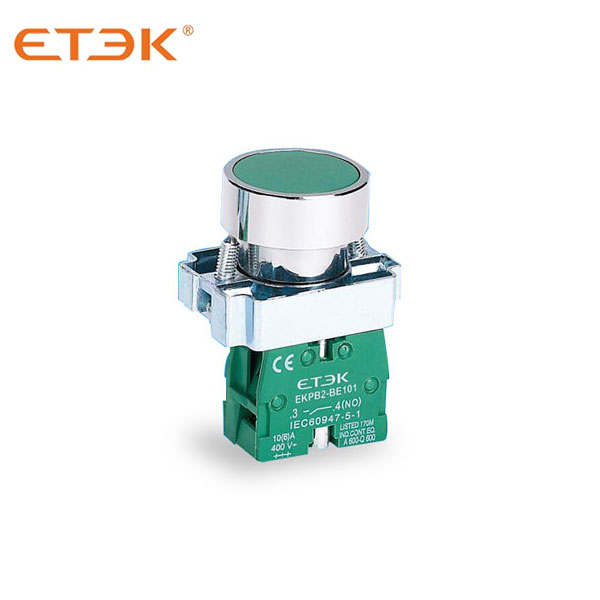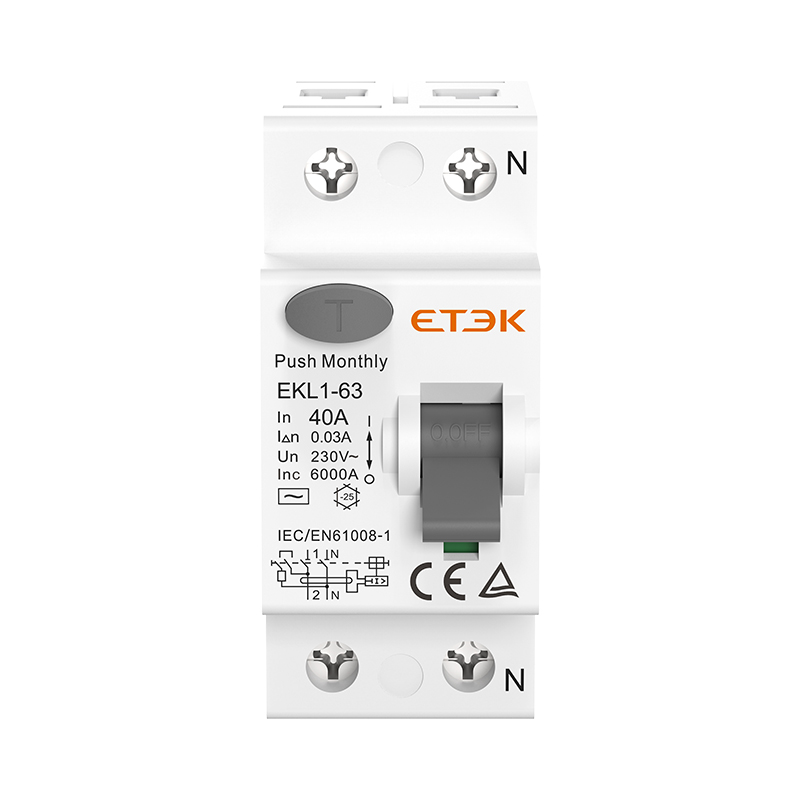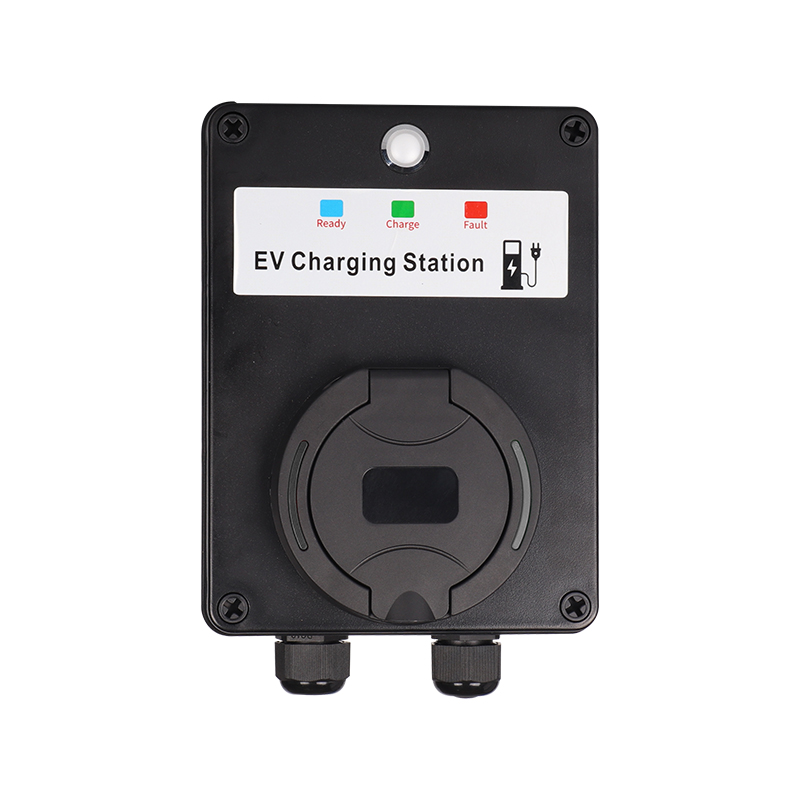EV Charging Safety: Why Type B & Type EV RCDs Matter
As electric vehicles (EVs) gain popularity, ensuring the safety of EV charging infrastructure is crucial. Residual Current Devices (RCDs) are essential for protecting against electric shocks and fire hazards at charging stations. B-type RCDs and EV-type RCDs are specialized solutions that offer enhanced safety and reliability for EV charging stations.
RCDs are safety mechanisms designed to protect against electric shock and fire hazards caused by ground faults. They detect any imbalance between the live and neutral conductors and quickly disconnect the circuit to prevent potential harm.
Types of RCDs
1. Type AC RCD: Detects and responds to alternating current (AC) residual currents.
2. Type A RCD: Detects both AC and pulsating direct current (DC) residual currents.
3. Type B RCD: Detects AC, pulsating DC, and smooth DC residual currents. Such as EKL1-63B, EKL6-100B, EKL5-63B, EKL15-63B from ETEK Electric.
4. Type EV RCD: Combines the functionalities of Type A with additional protection against DC residual currents up to 6mA, specifically designed for EV applications. Such as EKL6-63EV from ETEK Electric.
The charging process for electric vehicles presents challenges for traditional RCDs. EV chargers can produce smooth DC residual currents that may not be detected by Type AC and Type A RCDs, compromising safety.
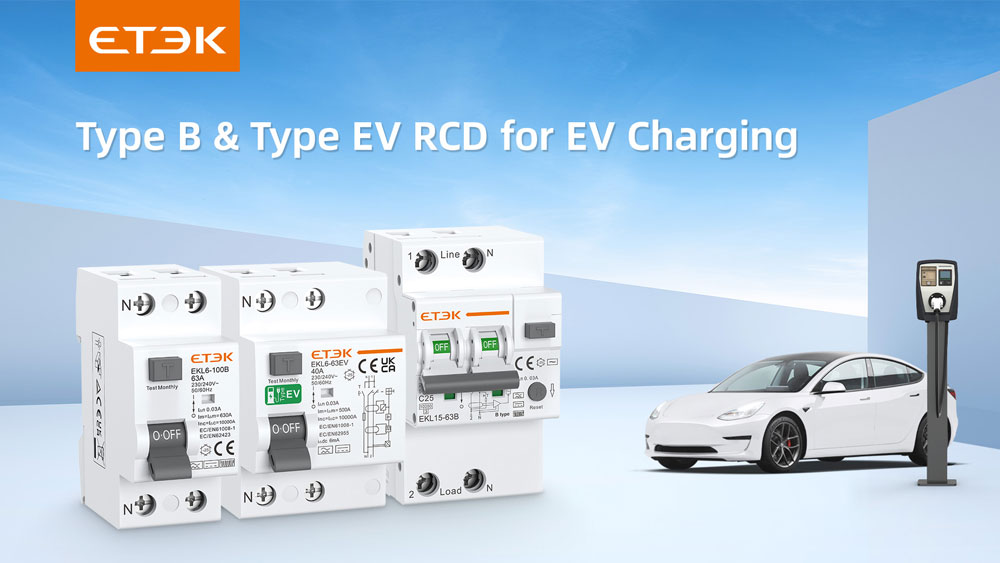
Why ETEK Electric Recommends B-Type and EV-Type RCDs
At ETEK Electric, we recognize the critical importance of safety in EV charging infrastructure. We advocate for the use of B-type and EV-type RCDs in charging stations for several reasons:
1. Comprehensive Protection: Both B-type and EV-type RCDs offer superior detection capabilities for most types of residual currents, ensuring robust protection against electric shock and fire hazards.
2. Regulatory Compliance: Many regions have stringent safety standards for EV charging installations that mandate the use of advanced RCDs capable of detecting smooth DC residual currents. Using these devices ensures compliance with local regulations.
3. Enhanced Reliability: By incorporating B-type or EV-type RCDs, charging station manufacturers and operators can enhance the reliability and safety of their installations, reducing downtime and maintenance costs.
4. Futureproofing: As EV technology continues to evolve, the demand for higher safety standards will only increase. Investing in advanced RCD technology now ensures that charging infrastructure remains relevant and safe for years to come.
Advantages of B-Type RCDs:
1.Comply with IEC standards 61008-1/61009-1 and 62423
2. Detect AC, pulsating DC, and smooth DC residual currents up to 1000 Hz, making them suitable for EV chargers.
Advantages of Type EV RCD:
1.Must meet IEC standards 61008-1/61009-1 and 62955
2.EV-type RCDs, also known as Type A + DC 6mA, are designed for electric vehicle charging, combining Type A RCD capabilities with additional sensitivity, to tripping where smooth DC residual currents up to 6mA.
Conclusion
The transition to electric vehicles is an exciting development with significant environmental benefits. However, it also brings new challenges that require innovative solutions. B-type RCDs and EV-type RCDs are essential components in ensuring the safety and reliability of EV charging stations.
For more information on our range of products and how they can enhance your EV charging solutions, please visit our website or contact our expert team at ETEK Electric. Together, we can drive the future of electric mobility safely and efficiently.




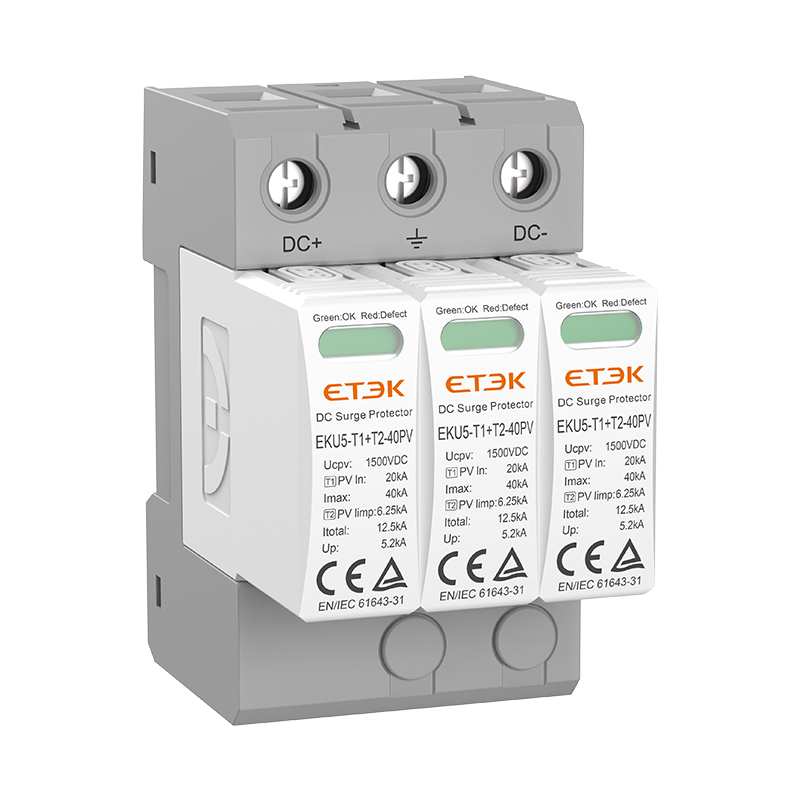
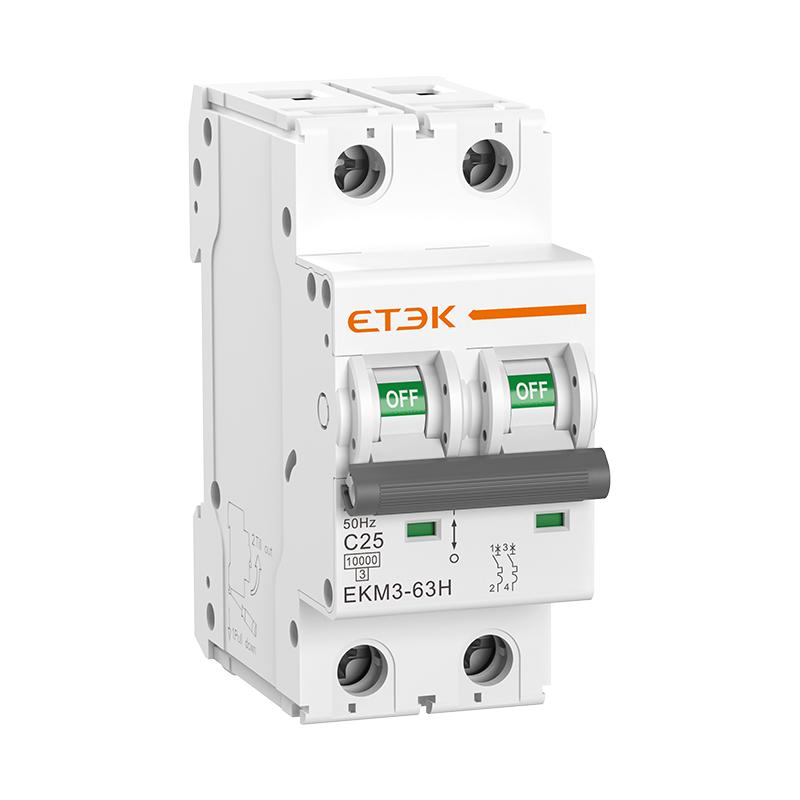
.jpg)
